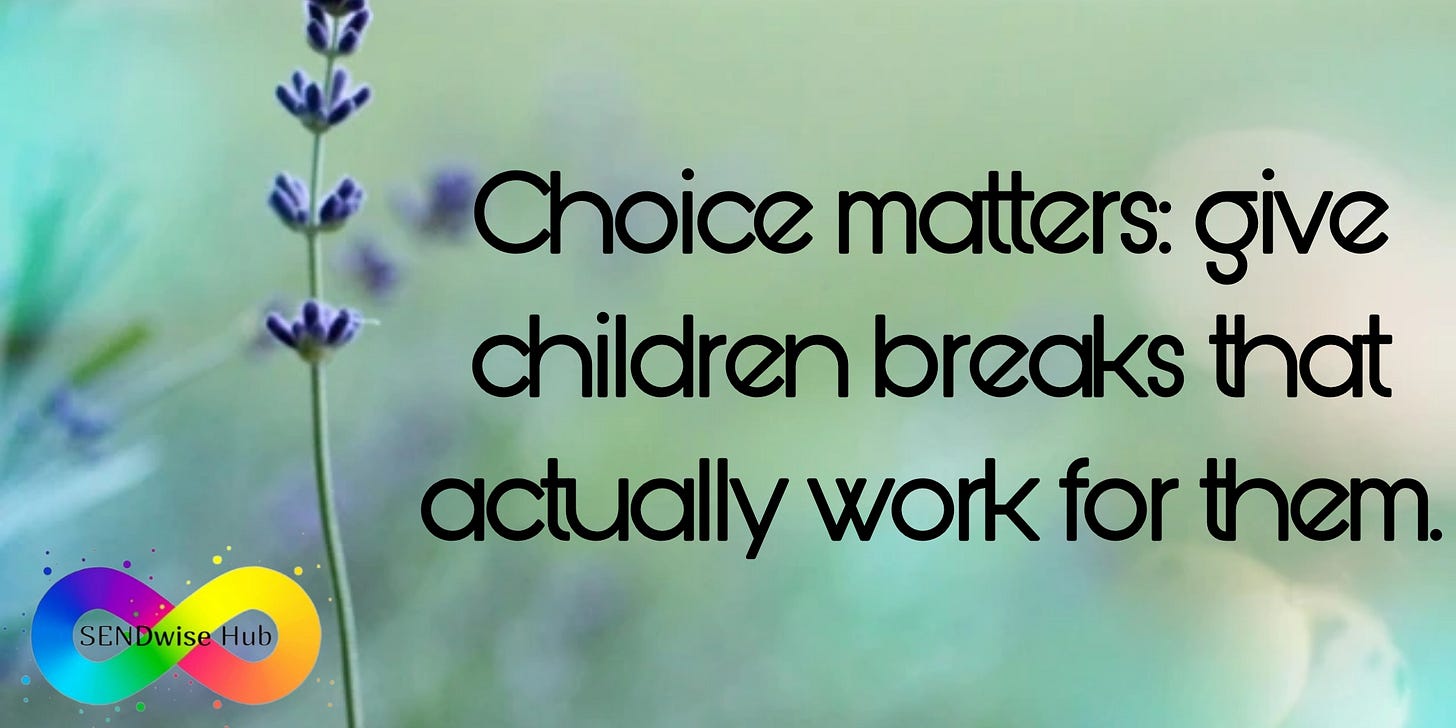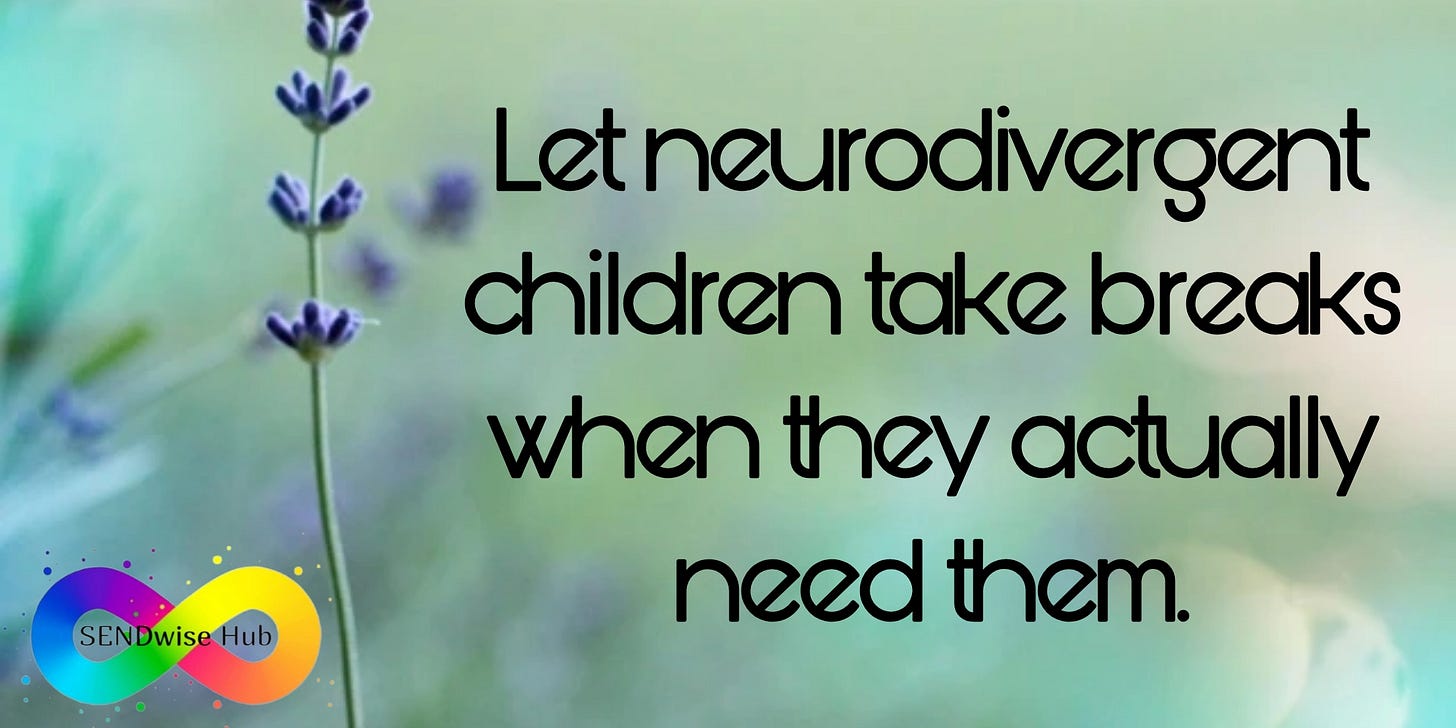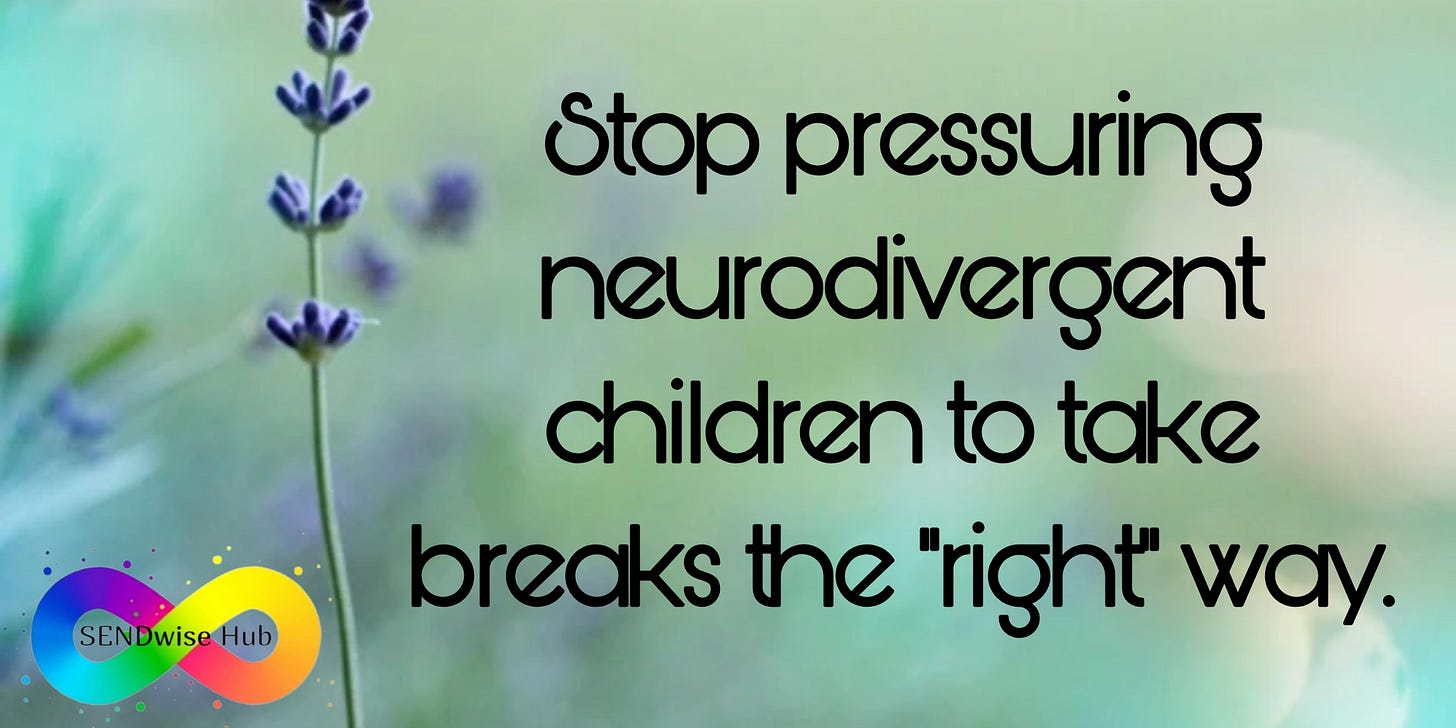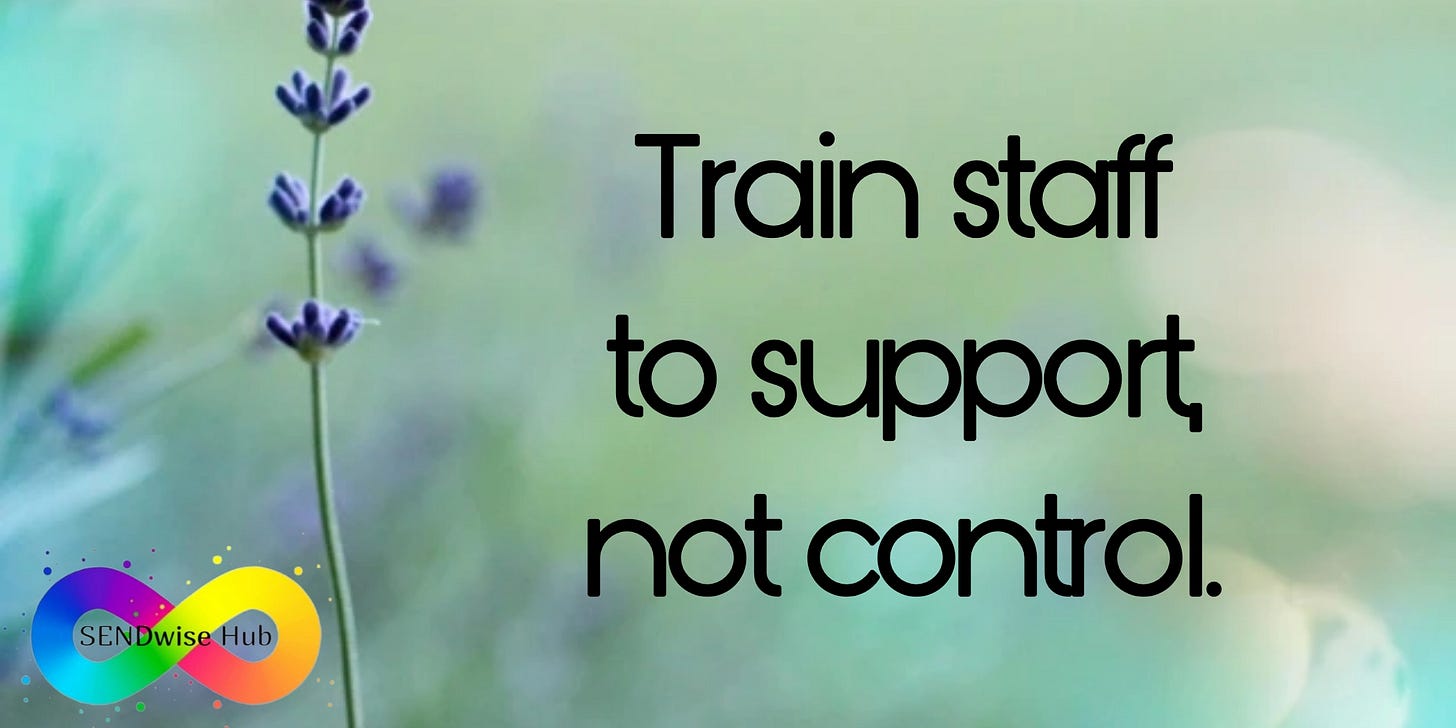Break time at school should be a chance to recharge not just another stressful, overstimulating part of the day. Yet for many neurodivergent children, traditional break time, which is loud, chaotic and unstructured, doesn’t actually provide relief. Instead, it can be overwhelming, draining and isolating.
I believe we should rethink how schools handle breaks, focusing on the needs of neurodivergent students without forcing them to conform to a system that doesn't work for them.
I’ve thought about some actionable ideas that could change things for the better.
Not every child thrives in the same kind of environment. Instead of a one-size-fits-all break chaos, schools could offer multiple break options. For example :
Quiet areas – A calm, low-stimulation space with dim lighting, noise-cancelling headphones and soft seating for children who need a sensory reset.
Movement areas – Spaces for children who regulate through physical activity, whether that’s swinging, climbing, pacing or running.
Creative & special interest spaces – Areas with LEGOs, art mediums, books and supplies on various subjects for children who recharge through focus and creativity.
Break time should feel like a real break, not just another environment where children have to mask or force themselves to play the right way - whatever that means!
Forcing all children into the same break schedule doesn’t work. Some children need shorter, frequent breaks instead of one long break. Others need to step away in the moment, not when a rigid schedule allows it. Schools need to:
Allow students to take self-directed breaks without fear of being punished or singled out.
Use sensory passes or hall passes so children can leave overwhelming situations without needing to justify themselves.
Incorporate in-class regulation breaks, because not every child can or should just push through discomfort.
Denying children the ability to regulate in ways that work for them is ineffective and harmful.
Break time should be a chance to decompress, so there has to be an understanding that some children don’t want to play the way others do and that's ok. That means:
Letting children opt out of chaotic break time games without shaming them.
Providing structured but low-pressure social opportunities for children who want to interact but struggle with unstructured play.
Recognising that alone time is valid because some children recharge best by reading, drawing, or just existing without expectation.
A break that leaves a child overstimulated, dysregulated or anxious isn’t a break at all.
Rest isn’t something neurodivergent children should have to earn by meeting neurotypical expectations..
Stop punishing children by taking away breaks as a method of discipline.
Recognise that doing nothing is a valid way to take a break. Children don’t have to run, chat or play to be using their break time correctly.
Make it clear that self-regulation isn’t defiance. If a child needs to stim or retreat to a quiet space, that’s not bad behaviour—it’s self-care.
Children need their breaks for both rest and self-regulation and respecting their individual ways of unwinding nurtures a healthier and more supportive environment.
Too many neurodivergent children get in trouble for simply existing as they are. Schools should take responsibility and..
Educate teachers and all the school staff on neurodivergence so they stop misinterpreting self-regulation as misbehaviour and understand the impact of unmet needs.
Encourage collaboration, not compliance. Instead of forcing children to follow rigid break rules, ask them what they need to feel safe and comfortable.
Shift the mindset from “How can we make them fit in?” to “How can we make this work for them?”
Educational staff should be equipped with the knowledge and ethos to support neurodivergent students whilst prioritising understanding and accommodation over control and compliance.
This isn’t just about making school a little easier but about dignity, autonomy and recognising that all children deserve a learning environment that actually supports them in the way that they need to be supported.
Neurodivergent children don’t need to be pushed to take breaks in ways that make them more exhausted. They deserve real rest, real choice and real respect.
If schools are serious about inclusion, this is a good place to start!
Thanks for reading, until next time!







